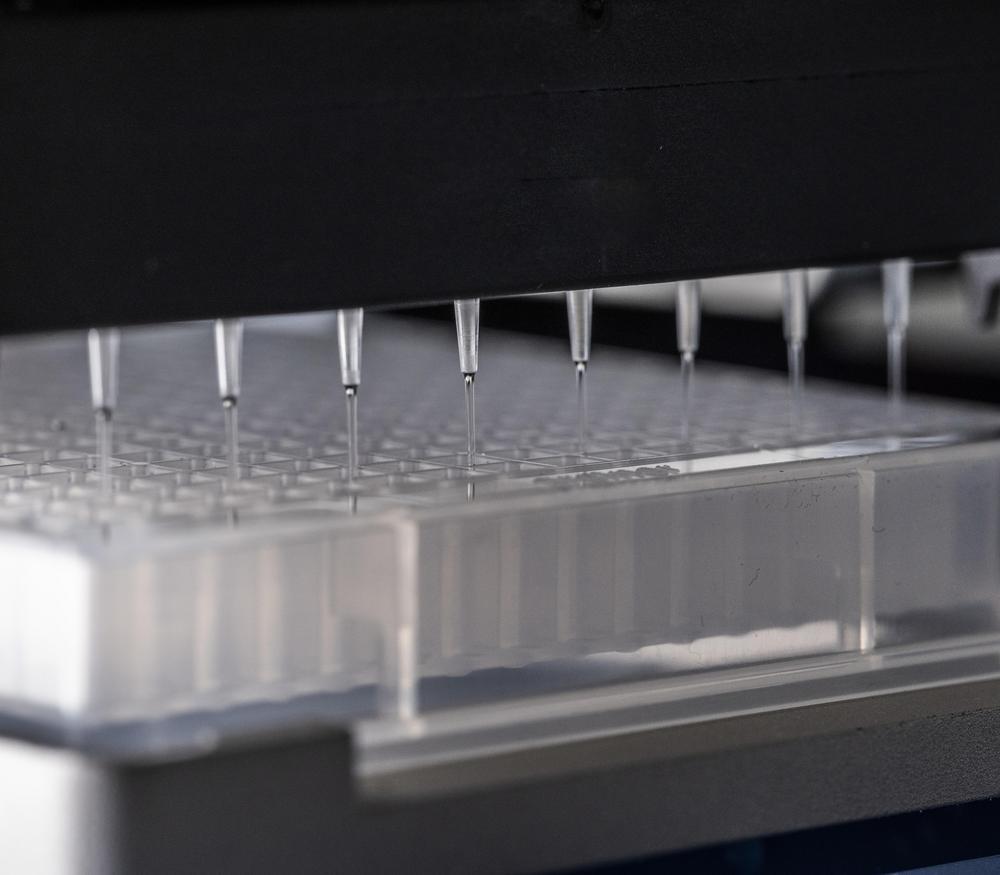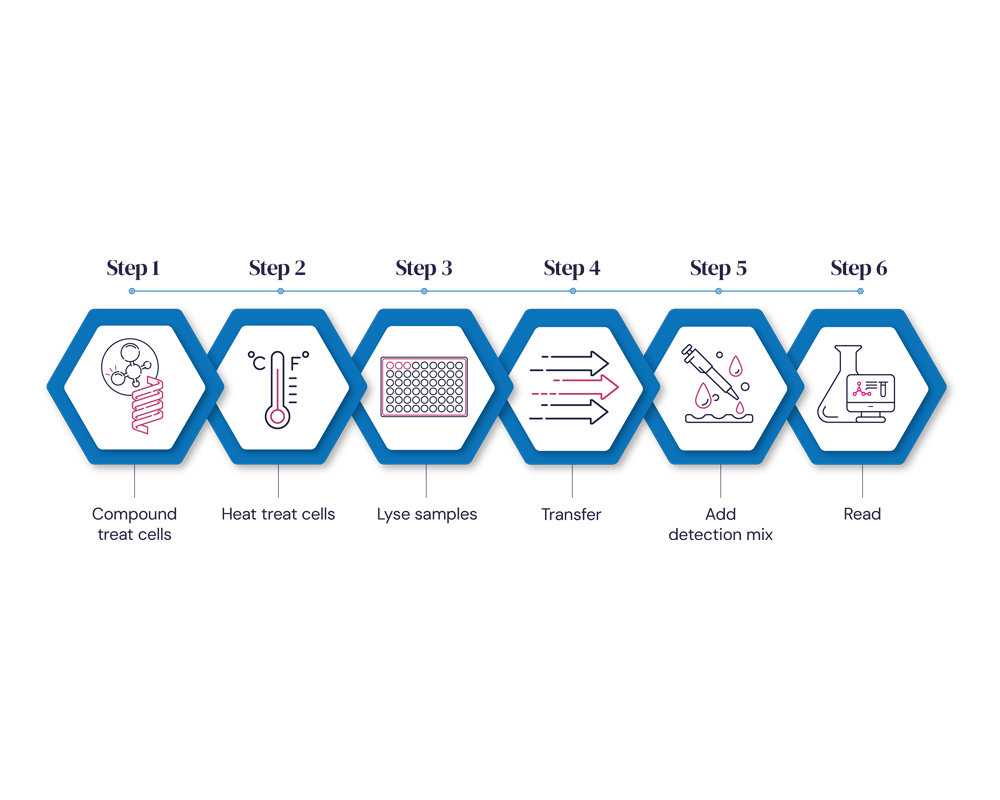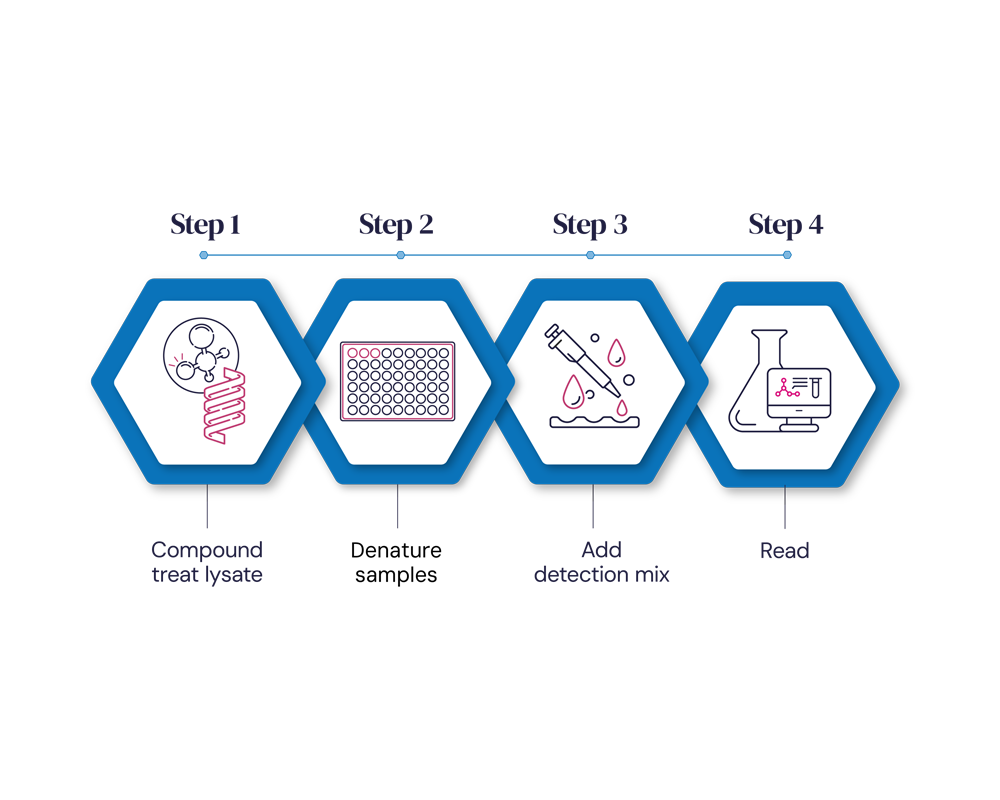The Chemical Protein Stability Assay (CPSA) is our proprietary, scalable solution for assessing cellular protein-ligand or protein-drug binding – designed to meet the increasing demand for rapid, label-free, physiologically relevant engagement data in early drug discovery.
We have developed a proprietary cell lysate‐based chemical protein denaturation technology to confirm protein target engagement. This is accomplished by assessing binding-induced stabilisation in a simple mix-and-read, scalable, cost‐effective assay.
Determining ligand target engagement is an essential process for hit discovery and lead profiling, where simple and rapid approaches are highly valuable tools in the drug discovery toolbox. CPSA is unique in that it only requires mix-and-read steps within a single assay plate, giving a streamlined, cost‐effective workflow without transfer steps. The use of cell lysates avoids potential difficulties with the purification of protein targets.
CPSA is adept at handling diverse needs, from rapid evaluation of a few lead compounds to 1536-well screening of large-scale libraries. As it does not rely on target activity, CPSA has the potential to identify novel series that bind outside of the active site and move into novel chemical space.
CPSA can be applied at every step of the drug discovery process, regardless of which cellular matrix you choose. We can generate biologically relevant data that helps you identify and prioritise drug candidates faster.

“CPSA was designed to bring clarity and efficiency to early-stage screening. By combining a straightforward workflow with label-free, physiologically relevant data, we are helping researchers make faster, more confident decisions about their lead compounds.”
John Vincent, Lead Scientist

Our patented assay applies to a range of cellular protein targets and can be configured using a range of protein detection technologies, depending on the throughput required for analysis.
CPSA is a lysate‐based, single‐well, mix-and-read assay without plate transfers to measure target engagement. Chemical denaturants are utilised to unfold proteins, and target engagement is confirmed by measuring the increased stability imparted to the target by your chosen ligand. It is highly amenable to plate-based compound screening and can generate high‐quality data in both dose-response and single-point formats.
As a label-free method requiring no modification of target or ligand, the true pharmacology of the molecule is retained, giving CPSA broad scope and enhanced physiologic relevance. Cell lysate fits well with large‐scale applications where confounding cellular permeability effects are not desirable at early hit ID while avoiding issues with large‐scale protein purification.
The simplicity of the workflow and reagents reduces assay variability and produces consistent data. CPSA is broadly applicable to a wide range of cellular targets. Data generated using CPSA is comparable to that generated using established alternative techniques, which demonstrates the application of this technique to compound screening and hit-finding activities.

CPSA combines simplicity, scalability, and scientific depth – offering several key advantages over traditional approaches:
Current industry standard protein stability assay follows a process of high-temperature incubations, lysis steps, and plate-to-plate transfers, which can be time-consuming and yield inconsistencies:

CPSA presents a simplified workflow suitable for HTS with relatively few steps. The use of lysate removes the need to generate isolated protein, and it does not require high-temperature incubations.


Get in touch to explore how CPSA could support your drug discovery project. Whether you are profiling a few leads or running high-throughput screens.
Fill in the form today and speak to us to see how we can help advance your drug discovery project.